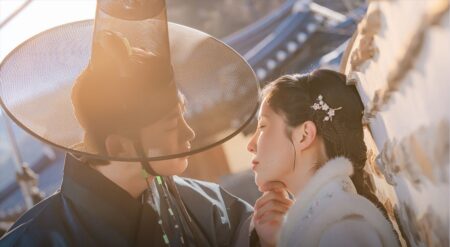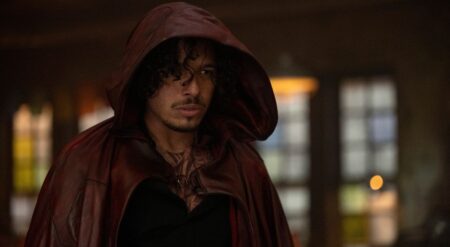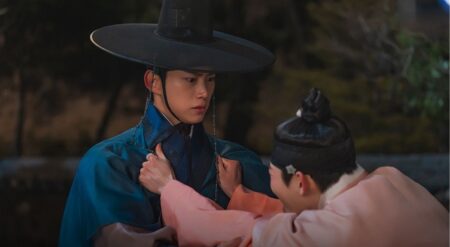
Oni: Thunder God’s Tale is a fantasy children’s series streaming on Netflix. Onari is preparing for her first day of the new school year. And while this might sound fairly mundane, a lot is riding on the new class of students in her quiet Kami village. The blood moon is coming, and with it, the Oni. Everyone in the village must be ready to do their part. But something strange is happening with Onari. Something seems to set her apart from the other Kami of the village.
With the pressure for every student to unlock their inherent power, or kushi, Onari struggles with getting hers to come to her. Her struggle to discover this part of herself provides the catalyst for Oni: Thunder God’s Tale’s core narrative as Onari ultimately learns a great many secrets about herself and the world beyond her tiny village.
Through the series’ four, forty-five-minute episodes, Onari’s story undergoes numerous transformations as the journey of self-discovery grows far larger than the initial intro implies. Despite how much ground the story covers, Oni: Thunder God’s Tale never manages to shake the feeling that it is taking too long to get to the next plot point. Overly long montages and slow exploration sequences ultimately bog down the series’ narrative to where its high points can never fully recover. The story has some strong moments to it, but the show’s pacing makes viewers earn them.
As a series aimed largely at children, Oni: Thunder God’s Tale does a great job of gently sprinkling in themes of tolerance, empathy, and managing fear into its story. The issues are addressed when appropriate, but never long enough to feel overwrought or heavy-handed.
The characters that make up Onari’s village are an eclectic cast that bring a variety of personalities into the story. While few characters beyond Onari have enough screen time to have any real character arcs, each character brings with them a reasonable amount of impact to Oni: Thunder God’s Tale’s story. Like Onari’s best friend, the overly shy Kappa. While there is little growth in the character, their steadfast support of Onari throughout the series is pivotal to the main character’s progression.
This impact on the part of the cast is helped by voice acting which is as a whole good. The various characters present a wide range of personalities through their unique voices. The voice acting rarely fails to deliver these personalities well. The only voicing that feels a bit overdone to me comes from Onari’s teacher Tengu, voiced by George Takei. While I can see what Takei is trying to accomplish with the overzealous instructor, the actor’s performance often feels forced. Too many of the teacher’s lines fall flat and elicit eye rolls.
The star of Oni: Thunder God’s Tale is its visual design. The series looks like a storybook come to life. There is a stop-motion feel to the animation that makes the magical world of Onari’s village come alive in a way that enchants the viewer. From the way it captures the characters playful dancing, to the mystical feeling it imparts when a group of forest spirits drifts through the air, the world is made to feel extra special through its visuals.
Oni: Thunder God’s Tale delivers gorgeous visuals, a solid core story, and some lovely messages about fear and tolerance that are unfortunately hampered by an overly long runtime. The series ultimately delivers a lot, it just takes too long to get there.
Oni: Thunder God’s Tale is streaming now on Netflix.
Oni: Thunder God’s Tale
-
Rating - 7/107/10
TL;DR
Oni: Thunder God’s Tale delivers gorgeous visuals, a solid core story, and some lovely messages about fear and tolerance that are unfortunately hampered by an overly long runtime. The series ultimately delivers a lot, it just takes too long to get there.






